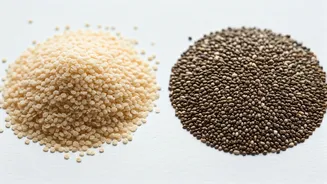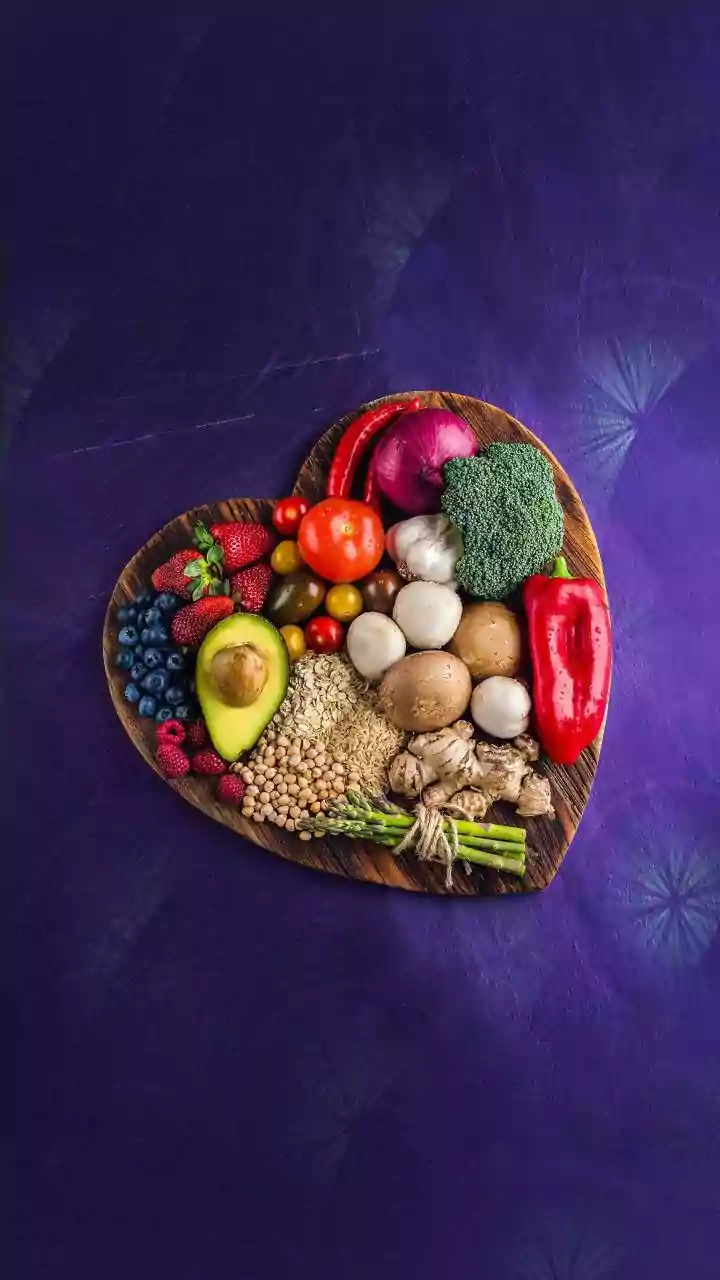Fiber's Crucial Role
Fiber, an indigestible carbohydrate, is fundamental for maintaining a healthy digestive system. It's broadly categorized into soluble and insoluble forms,
each offering distinct benefits. Soluble fiber, found in foods like Isabgol and chia seeds, dissolves in water, forming a gel-like substance that aids in slowing down digestion and regulating blood sugar levels. Insoluble fiber, on the other hand, adds bulk to the stool, promoting regular bowel movements and preventing constipation. This dual action of both types of fiber ensures optimal gut health, aiding in the absorption of nutrients and the efficient elimination of waste, making it an essential element of a balanced diet, particularly important for people living in India.
Isabgol Unveiled
Isabgol, also known as psyllium husk, is derived from the seeds of the Plantago ovata plant. It's a predominantly soluble fiber, known for its powerful ability to absorb water, which can swell and form a gel. This characteristic makes it effective in treating constipation and promoting bowel regularity. When consumed, Isabgol expands in the digestive tract, increasing the feeling of fullness, which can aid in weight management by reducing overeating. Additionally, it helps in lowering cholesterol levels by binding to bile acids in the gut, which the body then excretes. Isabgol is often used in traditional Indian medicine and is a common household remedy for digestive issues across India.
Chia Seeds' Benefits
Chia seeds, tiny black seeds originating from the Salvia hispanica plant, are a nutritional powerhouse, packed with fiber, omega-3 fatty acids, antioxidants, and protein. They contain both soluble and insoluble fiber, making them beneficial for both digestive health and overall well-being. The soluble fiber in chia seeds helps in slowing down digestion and controlling blood sugar spikes, while the insoluble fiber adds bulk to stools, promoting regular bowel movements and preventing constipation. Beyond fiber, chia seeds' omega-3 content supports heart health, and their antioxidants help combat free radicals. The versatility of chia seeds allows for their easy incorporation into various diets, from being sprinkled on meals to being made into puddings, making them a popular choice for health-conscious individuals in India.
Fiber Showdown: Comparison
When comparing Isabgol and chia seeds, both are excellent sources of fiber, but they differ in their fiber composition and associated health benefits. Isabgol is primarily a source of soluble fiber, making it highly effective for improving bowel regularity and lowering cholesterol levels. Chia seeds offer a blend of soluble and insoluble fiber, contributing to both digestive health and a more complete nutritional profile, including omega-3 fatty acids and antioxidants. The choice between the two often depends on individual needs and preferences. If constipation is a primary concern, Isabgol may be a more direct solution. If you're seeking a broader range of nutrients along with fiber, chia seeds would be a great choice. Both contribute positively to digestive wellness and can be easily incorporated into an Indian diet, given their availability and ease of use in various recipes.
Beyond Fiber: Nutrition
While fiber is the primary focus, it's essential to consider the additional nutritional advantages that Isabgol and chia seeds provide. Isabgol is primarily a fiber source, with minimal additional nutrients. Chia seeds, however, offer a wider array of nutrients. They are rich in omega-3 fatty acids, which are beneficial for heart and brain health. They also provide antioxidants, protecting the body against cellular damage and reducing the risk of chronic diseases. Chia seeds also contain protein, which aids in satiety and muscle repair, and various minerals like calcium, magnesium, and phosphorus, which are important for bone health and other bodily functions. This wider nutritional profile makes chia seeds a more comprehensive addition to a balanced diet compared to Isabgol, which primarily focuses on digestive health.
Practical Applications
Incorporating Isabgol and chia seeds into your diet is simple. Isabgol can be mixed with water or milk and consumed before meals to aid digestion and help manage blood sugar levels. It's important to drink plenty of water when consuming Isabgol to prevent bloating. Chia seeds can be added to smoothies, yogurt, salads, or oatmeal. They can also be soaked in water or milk to form a pudding-like consistency. Both Isabgol and chia seeds are versatile and can be used in a variety of Indian recipes. For example, Isabgol can be mixed into lassi or added to roti dough to increase its fiber content. Chia seeds can be sprinkled on top of parathas or used in the preparation of healthy snacks, making it easy for individuals in India to include these fiber-rich foods in their daily routines.
Considering Cost & Availability
The cost and availability of Isabgol and chia seeds can be important factors when making a choice. Isabgol is typically more affordable and widely available across India, being a common ingredient in many households and easily found in local stores and pharmacies. Chia seeds, while growing in popularity, may be slightly more expensive, particularly for organic varieties, and might be less accessible in smaller towns compared to major cities. Availability is also increasing, with chia seeds now commonly stocked in supermarkets and health food stores nationwide. Considering the cost-effectiveness and ease of access can help consumers make an informed decision aligned with their budget and location in India. Both options are generally affordable and can be readily integrated into an Indian diet.
Making the Right Choice
The “better” choice between Isabgol and chia seeds depends on your individual needs and dietary goals. If you're looking for a simple and effective solution to constipation and are focused on gut health, Isabgol might be a suitable choice due to its high soluble fiber content and ease of use. If you want a more comprehensive nutritional boost, including omega-3s, antioxidants, and a mix of soluble and insoluble fiber, chia seeds would be a better choice. When choosing, consider factors like your existing diet, any specific health conditions, and personal preferences regarding taste and how you want to include these foods in your meals. Consulting a healthcare professional or a registered dietitian is also advised, especially if you have pre-existing health conditions or are unsure about introducing a new food into your diet. This will ensure that the selected option aligns with your health requirements and dietary goals.



















